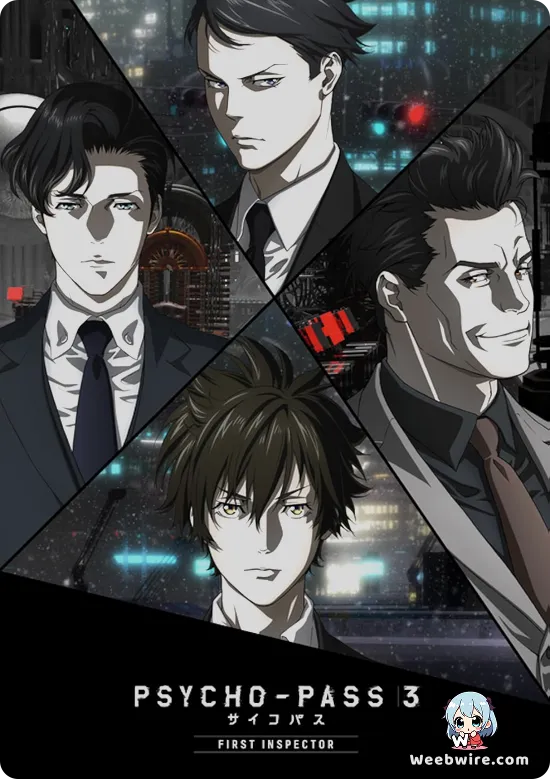

© Production I.Gwww.crunchyroll.com
Overview
Set in a highly advanced, yet frighteningly controlled, dystopian future Japan, PSYCHO-PASS 3 delves back into the world governed by the omnipresent Sibyl System. This powerful artificial intelligence monitors the mental states, emotional tendencies, and criminal potential (Crime Coefficient) of every citizen, ensuring public safety through preemptive justice. The narrative pivots around two newly assigned inspectors within the Ministry of Welfare's Public Safety Bureau: Arata Shindo and Kei Mikhail Ignatov. Shindo possesses the unique ability of a 'Mental Trace,' allowing him to immerse himself into crime scenes and perceive the psychological states of victims and perpetrators. Ignatov, a career police officer with a background in strategic analysis, serves as his logical anchor. Together, they are tasked with solving complex, high-stakes cases that often expose the fissures within the Sibyl System's supposedly flawless governance. This season introduces a sprawling conspiracy involving a mysterious organization known as Bifrost, which manipulates societal structures through political corruption, corporate espionage, and complex immigration issues, forcing Shindo and Ignatov to question the very definition of law and justice in their society. Notably, PSYCHO-PASS 3 deviates from standard anime formatting by offering eight hour-long episodes, produced expertly by Production I.G, allowing for an incredibly detailed exploration of its intricate plot lines and deep character development, solidifying its place as a cornerstone of psychological science fiction anime.
Opinion
PSYCHO-PASS 3 successfully elevates the franchise by focusing on procedural complexity and philosophical inquiry. The shift to protagonists Arata Shindo and Kei Mikhail Ignatov provides a necessary revitalization, offering distinct perspectives—one intuitive and the other pragmatic—on policing within a surveillance state. Production I.G maintains the high standard of visual fidelity expected of the series; the action sequences, particularly those involving Dominator weaponry and close-quarters combat, are fluidly animated and possess significant visual impact. Character modeling and environmental design effectively convey the sterile, yet technologically dense, atmosphere of the setting. The story pacing, facilitated by the feature-length episode structure, is deliberate, allowing intricate political and social plots concerning Bifrost and immigration to unfold without feeling rushed, though this complexity occasionally demands intense viewer concentration. The voice acting, particularly by Yoshimasa Hosoya and Yūki Kaji, is superb, grounding the emotional weight of their characters’ moral conflicts. The thematic depth is perhaps the strongest element, tackling contemporary issues of societal stratification, data privacy, and the inherent flaws of automated justice systems. While the season successfully expands the universe and sets up future conflicts, its reliance on dense jargon and political maneuvering means it may be less accessible to casual viewers, yet it serves as a sophisticated, thought-provoking continuation for established fans.
Characters
Nobuchika Ginoza
Voice: Kenji Nojima
Arata Shindo
Voice: Yoshimasa Hosoya
Kei Mikhail Ignatov
Voice: Yūki Kaji
Shinya Kogami
Voice: Tomokazu Seki
Tsunemori Akane
Voice: Kana Hanazawa
Credits
Studio
Production I.G
Cover Art
Production I.G art team
Publisher
Futabasha
Producers
Production I.G, Fuji TV, Futabasha
Episodes
Season 1
8 episodesInformation
Genres
Related Anime

Fullmetal Alchemist: Brotherhood

Attack on Titan

Hunter x Hunter Story, Characters, Revival News, & Similar Anime

Gintama.: Slip Arc

Mob Psycho 100 III
